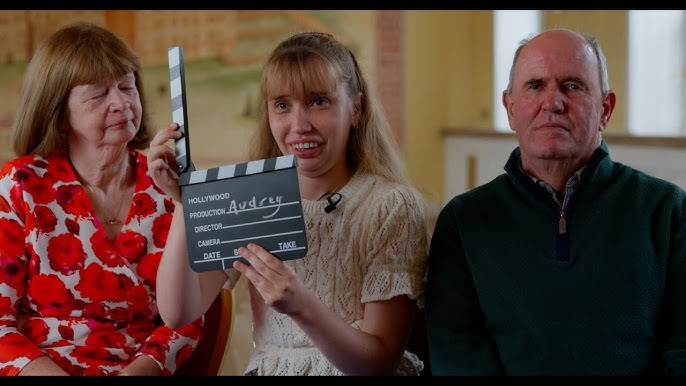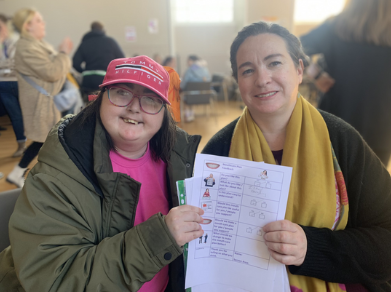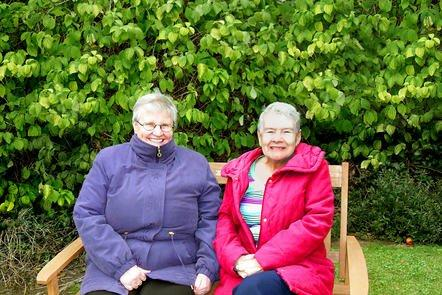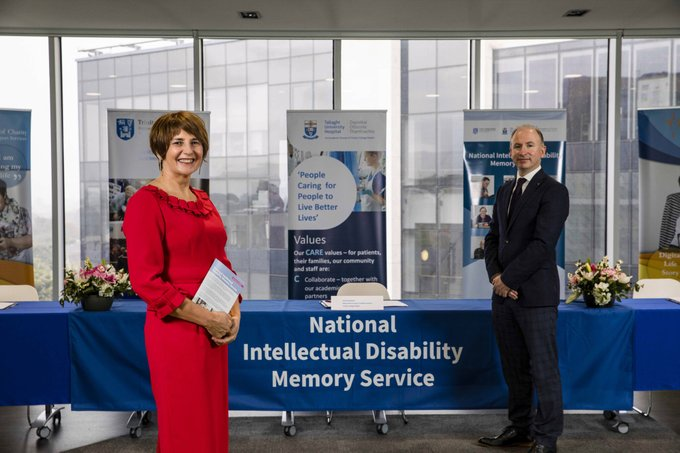Wave 5 Impact Case Studies
Building Circles of Support for People with an Intellectual Disability

The Building Circles of Support for People with an Intellectual Disability project aims to demonstrate examples of good practice in Circles of Support through case studies of positive lived experiences of participants with intellectual disabilities and the people in their Circles of Support. By utilizing research, the project seeks to create resources that enhance Circles of Support, applicable in person-centered planning processes. Accessible materials, including a downloadable booklet and videos, are based on the experiences of individuals, their families, and their broader support networks. Collaborating with various partners, the project emphasizes the value of supportive relationships and hopes that others can learn from the inspiring examples showcased in the videos.
Impact Case StudyAdvancing Oral health for People with Intellectual Disabilities through Keep My Teeth, Co-Designed Mouthcare plans and the MOSST

IDS-TILDA findings reveal that individuals with intellectual disabilities in Ireland often face significant oral health challenges, leading to worse outcomes than the general population. To address this, the Modified Oral Status Survey Tool (MOSST) was developed with the Dublin Dental University Hospital. This tool enables the inclusion of individuals with intellectual disabilities in essential data collection, critical for shaping national policies and enhancing services. In response, the "Keep My Teeth" project was launched to improve oral health for individuals with intellectual disabilities and autism. It focuses on the development and implementation of comprehensive Mouthcare Plans (MCPs) through a co-design process involving individuals, caregivers, and healthcare providers.
Oral Health Impact Case StudyEmpowering Healthcare: From Research to Practice in Intellectual Disability Health Assessment

This Massive Open Online Course (MOOC) was created to address health assessment disparities faced by individuals with intellectual disabilities. Guided by an emancipatory philosophy, it integrates insights from both these individuals and healthcare professionals. The course focuses on the nuances of intellectual disabilities, communication challenges, and reasonable adjustments in health assessments. It equips healthcare professionals with transferable knowledge to better support individuals in managing their health. Over three weeks, participants explore the well-being of adults with intellectual disabilities, best communication practices, and practical advice for conducting health assessments, drawing from insights of IDS-TILDA.
MOOC Impact Case studyConsolidating the Work of the National Intellectual Disability Memory Service

The establishment of Ireland's first National Intellectual Disability Memory Service (NIDMS) represents a transformative moment in healthcare, directly stemming from critical research insights gathered through IDS-TILDA. This research underscored the alarming gap in dementia assessments among individuals with intellectual disabilities, despite their heightened risk of developing the condition—particularly among those with Down syndrome. NIDMS delivers a person-centered approach to dementia care, providing timely assessments, diagnoses, treatment options, and support tailored for individuals with intellectual disabilities. NIDMS exemplifies the impact of translational research in improving healthcare outcomes for vulnerable populations.
NIDMS Impact Case Study
